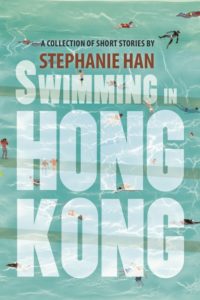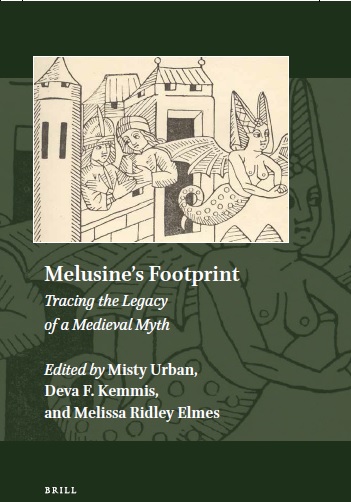 Take a deep breath before you dive into Stephanie Han’s Swimming in Hong Kong, because this brilliant collection will pull you in from the very first story and hold you there until the end. Han’s collection was a 2015 finalist for the AWP Grace Paley Prize in Short Fiction, an award coveted by just about every short-story writer, and is forthcoming from Willow Springs Books, a lovely literary press housed at Eastern Washington University in Spokane, right up the street from my old stamping grounds at Lewis-Clark State College.
Take a deep breath before you dive into Stephanie Han’s Swimming in Hong Kong, because this brilliant collection will pull you in from the very first story and hold you there until the end. Han’s collection was a 2015 finalist for the AWP Grace Paley Prize in Short Fiction, an award coveted by just about every short-story writer, and is forthcoming from Willow Springs Books, a lovely literary press housed at Eastern Washington University in Spokane, right up the street from my old stamping grounds at Lewis-Clark State College.
Han teaches in Hawai’i and graduated from City University of Hong Kong and resides in both places, and the stories reflect the outlook of narrators who are cosmopolitan, internationally informed, and sometimes a touch travel-weary in their outlook. They cross boundaries of nationality, ethnicity, gender, and age, from Koreans in America to Americans in Korea, with locales moving from Seoul to Hong Kong to the Grand Canyon to Nantucket. For all that, the stories adhere to what I think of as a uniquely American (or at least uniquely Western) model of the short story: they are subtle, they are evenly paced, the conflict resonates across multiple levels, the stories ripple with metaphor and symbol, and the language is luminously attentive, rigorously controlled, and delicately precise.
For all the varieties in their situations, the early stories all feel as if they share a narrator, so similar are they in conflict, and in situation: an intelligent, sensitive young woman confronts a culture that doesn’t quite feel like home, whether in Asia or the Americas, and quite acutely observes the particular prejudices aimed at her for her Asian face and Western access. In the first story, “Invisible,” a faithful exercise in the obligatory early-MFA-workshop second-person narrator story, a young woman sits at an ex-pat bar in Hong Kong and experiences the peculiar vanishing trick that has become all too familiar to her as the Asian wife of a white husband. He’s looking right at her, even talking to her, but her husband’s co-worker and friend clearly doesn’t see her, and certainly doesn’t catch the barbed hints she sends his way.
Asianness is likewise the mask that the radical young college student in the second story, “The Body Politic, 1982,” is trying to throw off, or emerge from behind, but she doesn’t know to what extent people are interacting with her or their stereotypes about how a young Asian woman should look and act. Exposed to the feminist movement on a liberal campus, we see her in the opening scene chanting “I am not your servile Oriental sex object! Capitalism equals colonialism and sexism!” and debating how far she is willing to be the poster girl for this or that Asian campus club. And yet she falls prey, as so many young college women do, to a man who coerces her into sex, and gains her compliance because she wants to be “nice,” even though the encounter is painful on all levels. Han shines a light on the difficulties not just of being female, and therefore already Othered, but being doubly or triply removed from the charmed hegemonic circle—by ethnicity, by nation of birth, by the ability to cross over and see beyond boundaries, but at the same time never feel that sense of belonging anywhere.
Home is what the young narrator of “Canyon” is searching for, particularly a home identified by the comfortable materiality of Western culture, a Christian boyfriend who loves her, and a familiarity with the great U.S. landmarks, like the Grand Canyon. But in this, my favorite story in the collection, a hike with her lover becomes a confrontation with all the ways she is disconnected from him, including the painful secret about what she left behind in Korea. Her Asianess likewise seems the thing that bars the sweet young summer worker in “Nantucket’s Laundry, 1985” from her desired love interest, Ted—the seeming epitome of the charmed and privileged white boy, who goes on to have a terrible life.
Her Asianess, however, is the very thing that attracts the painfully loutish, culturally tone-deaf Dan in “The Ki Difference” to this story’s narrator, but even so she is gentle with him, patiently trying to correct his demeaning manner toward the locals and improve his knowledge about the culture that is an economic opportunity for him, but home to her. Han doesn’t descend to caricature or stereotype, but she doesn’t need to do so to get her point across; the reader gets the sense that she is accurately, patiently, and sometimes with outraged grace reporting on the many, many things she has observed or experienced from her unique point of view about the several cultures she can call home.
Later stories in the collection depart from the love interest/Orientalism theme and explore challenges that seem less place-specific and more universal, while introducing new and fresh voices. A young girl in “Hong Kong Rebound” watches the subtle way her father is excluded from a sport he enjoys. In “Languages” the challenges of the schoolteacher narrator feel more relatable despite her Korean context, for many women have mothers who fear they will never find husbands, and many women have experienced being attracted to someone who is not suitable husband material at all. In “My Friend Faith, 1977” it’s the Asian girl who gets to go home to America, where she learns that her brief summer friendship in Seoul with the white missionary, Faith, has less of real connection to it than even she knew.
The last story in the collection, the title story, feels the most mature, controlled, and accomplished, and yet at the same time the most incomplete. The narrator, an older man nicknamed Froggy, takes an interest in a young woman learning to swim at his local pool. An excellent swimmer himself, Froggy distracts himself from fretting about the life path of his eldest son by watching this woman tackle her new skill, and gently coaching her. The story also incorporates the viewpoint of the woman, Ruth, a Jamaican-American who is truly a global citizen and ready to move from Hong Kong to anywhere. She conquers the breaststroke, but it’s not entirely clear what else changes for Ruth, or causes her to move to India—when you have no home, your home is anywhere? And the resolution of Froggy’s relationship with his son with a simple invitation to swim also seems a little too pat for the sophistication the rest of these stories have demonstrated.
Still, the collection delights for its extraordinary range, the subtle clarity of its vision, and the painful truths it honestly confronts about how white culture treats the Asian Other. As always, fiction can deliver the message more meaningfully than even the best political satire. And yet Han’s faith in her readers to see and grow beyond such limited thinking is generous and persistent, even through to the end. If Froggy can learn that the seemingly hard-headed younger generation can still share some of the values cherished by their elders, even the most culturally bound readers of Han’s memorable and masterful collection can take a broader, birds’-eye view of the world and go swimming, however briefly, in new and explored worlds.

One thought on “Swimming in Hong Kong by Stephanie Han”
Comments are closed.